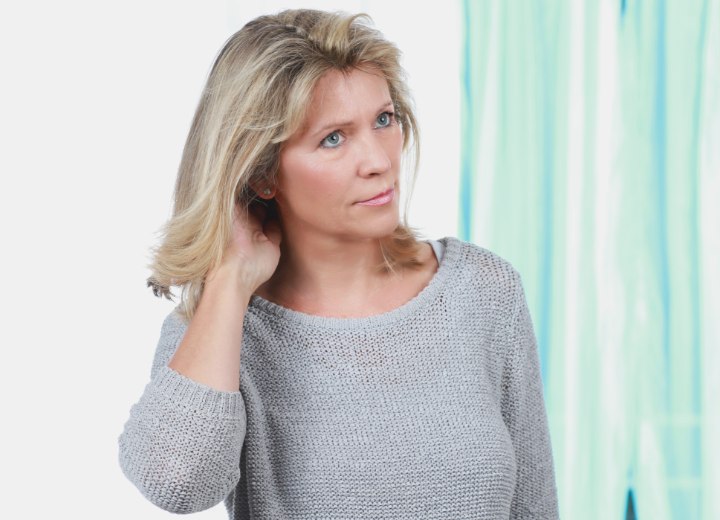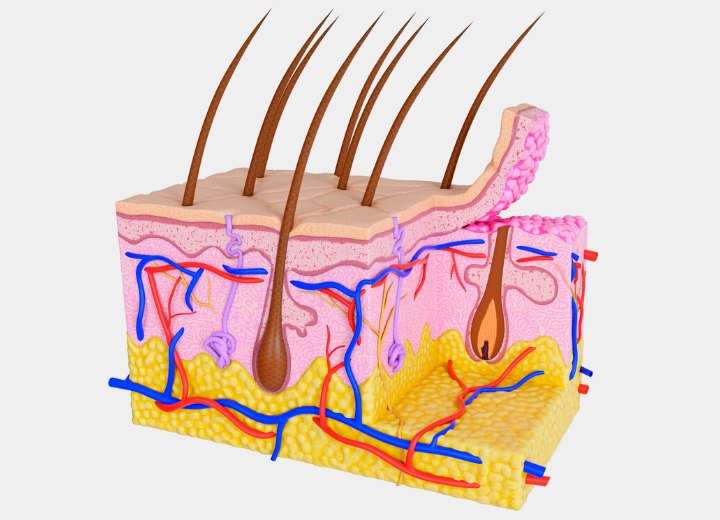Menopausal Changes

It is a change, but only a change. With the right attitude and an adjustment to their health and beauty routine, many women are able to adapt to these changes with minimal fuss.
Menopausal Changes in the Skin
Because of the decline in estrogen levels (and the aging process in general), skin and mucous membranes in various parts of the body often become drier with the onset of menopause. Women who once worried about oily skin may now find their skin dry and itchy, and they may need to apply moisturizers and hand creams.
As the body ages and the estrogen level declines, the fatty layer beneath the skin's surface that makes the skin appear supple and youthful begins to shrink due to a loss of elasticity and moisture. The outer skin layer is now looser than the deeper layers, and it begins to fold and wrinkle. The skin may also develop a rougher texture as the loss of moisture results in a hardening of the outermost layer of the epidermis, the stratum corneum.
The shrinkage of the fatty layer of the skin, which causes the development of wrinkles and lines in the skin, results in a thinner skin overall. The thinning of the skin means that it becomes more translucent, which affects the overall complexion. At this stage, it is especially important to protect your skin from the sun.

Menopausal Changes in the Hair
These same hormonal changes that affect the skin also have an effect on the hair and all aspects of its growth. This is logical when you consider that the hair follicles are part of the skin's anatomy. Of course, this makes some aspects of menopausal changes to the hair doubly impacting, since the skin's condition also affects the hair.
Hair all over the body can change in texture and quantity during menopause. For some women, the increased effects of the body's androgens can result in darker, thicker, and wiry body hair on the pubic area, underarms, face, chest, lower abdomen, and back.
This sprouting of excess, coarse hair, known as hirsutism, is usually related to hormonal changes. However, not all cases of hirsutism are menopause-related, so check with your doctor for proper diagnosis if the changes seem excessive compared to similar reactions in older female family members.
The hair on your head begins to change in texture as you get older, and menopause causes further change. A loss of luster occurs because individual hair shafts begin to thin and dry due to hormonal changes. The process of replacing normal daily hair loss slows down, and the new hair that grows in is usually dryer and less shiny.
Continue reading ...